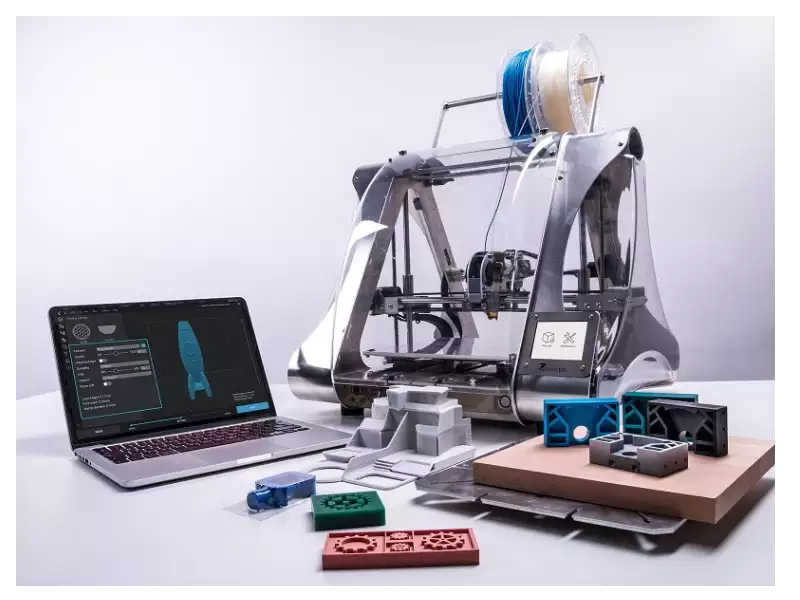Dubai’s emphasis on innovation has made the Emirate one of the world’s technology and innovation hubs and serves as an example on how investment in the technology sector can propel economic growth despite a variety of challenges. Examples include the use of AI in numerous sectors, smart devices, and 3-D printing technology.One innovative project that enhances the Emirate’s potential to employ technology in dealing with a pandemic-like catastrophe is the police in Dubai’s widespread usage of smart helmets that allow scanning the temperatures of hundreds of individuals in a matter of minutes.
Police personnel assigned to special pandemic duty claim that the thermal sensors in these helmets are capable of recording the temperatures of up to 200 persons each minute. They claim that these intelligent helmets have two cameras and can transmit infrared heat images up to five meters away. They note that they can quickly identify the ones with high temperatures and transfer them to the closest medical facility with the aid of paramedics.
Dubai’s arsenal against Covid-19 goes beyond just smart helmets. Additionally, it made low-cost face shields using 3D printing technology, which significantly aided in halting the spread of the new coronavirus.
Dubai-based Immensa Labs, the unchallenged leader in additive manufacturing in the MENA region and a face shield manufacturer, has been in the vanguard of Dubai’s fight against Covid-19.
Everything began in March when Immensa CEO Fahmi Al Shwaa learned that certain persons were raising the price of face shields in order to take advantage of the supply shortfall. Around eleven in the morning, he asked whether we could take action. Axel Fernandes, the chief operating officer of Immensa, recalled this in an interview with ET NOW. “By evening, we had 3D printed 10 face shields. It goes without saying that the doctors who viewed the product were very pleased.
“From March until now, we began with physicians, institutions, and hospitals, and we moved from producing 10 units to several million in a short period of time, and that was only made possible by 3D printing,” continues Fernandes.
Immensa places a lot of emphasis on the construction sector and provides specialized tooling and mould for the precast industry. Construction and logistics are two industries that are excellent examples of the adoption of 3D printing for disruption. According to Fernandes, distributed manufacturing, a benefit of 3D printing, can significantly improve the pandemic-affected logistics industry.
If smart helmets aided in the early identification of those exhibiting Covid-19 symptoms, the development and distribution of masks in sufficient numbers helped to stop the virus’ spread. Chairman of Darb Technologies Thani Al Falasi agrees and claims that technology has been essential in containing the pandemic. He cites the example of ALHOSN UAE, an app launched by the Dubai Health Authority that allows users to receive a simple SMS notice to learn their results. According to him, the app also explains how and where an infection occurred and can tell if a person was in close proximity to a person who had contact with a Covid-19 carrier.
Another element that accelerated findings was using laser testing rather than nasal swabbing. However, I believe that Emirate’s ID is the secret to success because having all of your data in one location makes it much easier for the government to obtain information about a person.Darb Technologies, a company founded in 2015 for SME growth, offers hardware and software solutions to the government and enterprise sectors in the UAE. It is one of several companies with a solid technical foundation that support Dubai’s goal of positioning itself as a knowledge-driven economy.
Dubai Future Foundation’s April announcement of the One Million Arab Coders Covid-19 Hackathon was more evidence of the city’s emphasis on technology in combating the novel coronavirus. The Hackathon, with the theme Coders versus Corona, offered a $50,000 cash prize to 5 teams that proposed creative answers to the problems caused by the Covid-19 epidemic.
Sajithkumar is not surprised by the way Dubai employed technology to combat Covid-19 because the Emirate has been investing heavily in tech firms. “A variety of steps are being taken to promote Dubai as a based on knowledge economy. Business support for AI, IoT, and fintech is offered by Silicon Oasis and other free zones. Therefore, Dubai’s reliance on technology to combat COVID-19 was reasonable, according to him.


